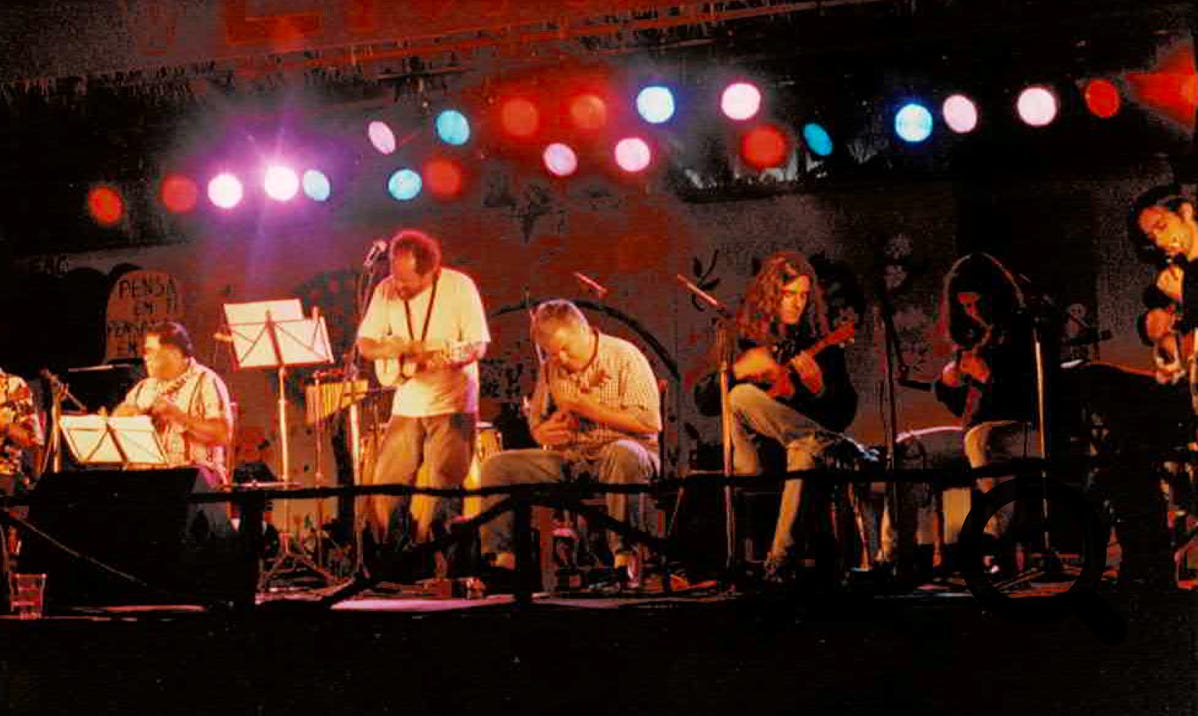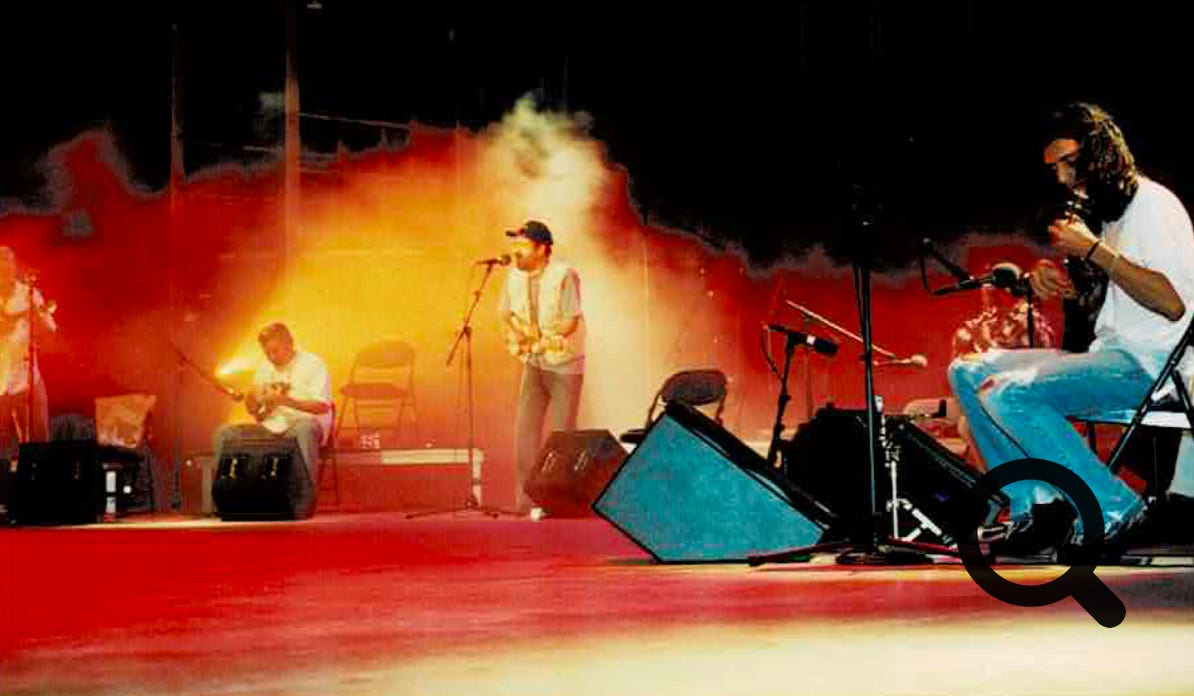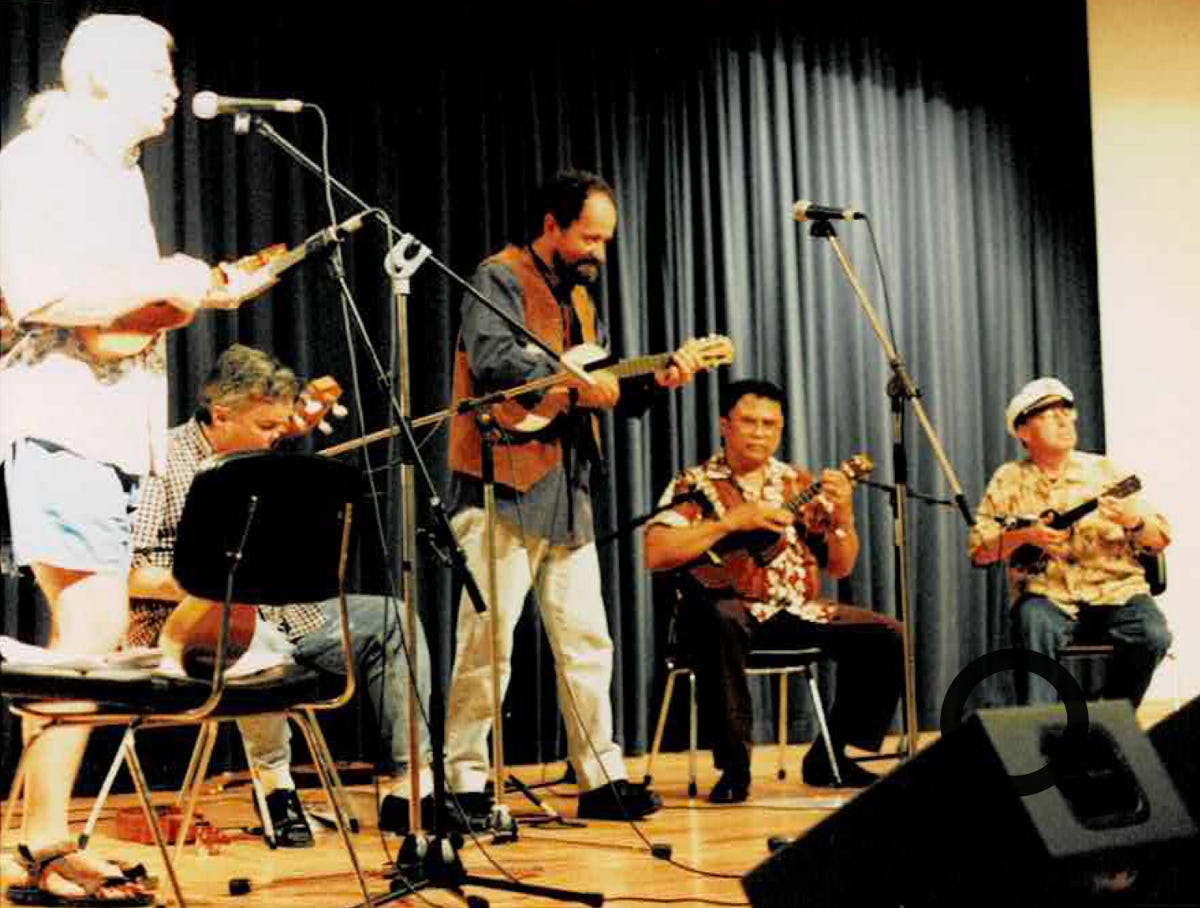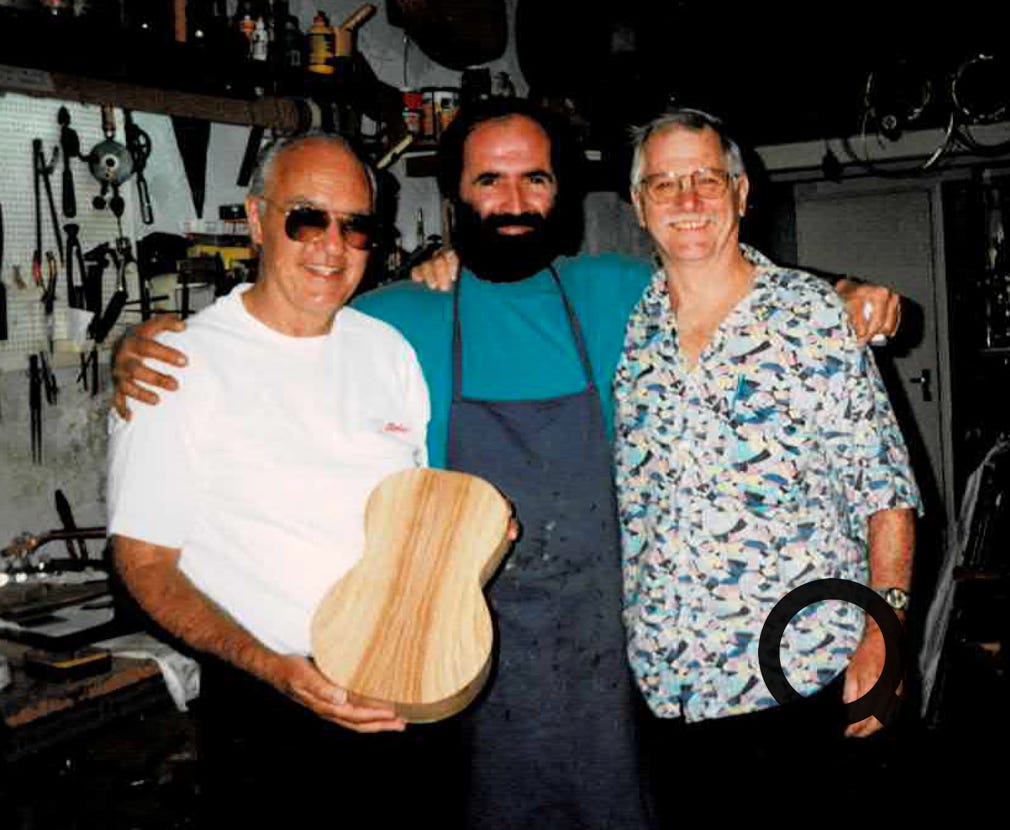FATHER AND SON REUNION:
THE BRAGUINHA MEETS THE UKULELE
The tiny braguinha and the slightly larger rajão, Portuguese folk instruments from Madeira Island, were the forerunners of the ukulele, the sprightly music maker of Hawai'i and elsewhere. It wasn't until the mid-1960's that the people of Madeira Island learned the ukulele had Madeiran roots, when A. C. Fox, Jr., US Marines, ret., visited the island on vacation and told a local newspaper editor. Fox is a great grandson of Manuel Nunes, one of the three woodworkers credited with creating the ukulele shortly after they arrived in Honolulu in 1879. Fox lives today in Grass Valley CA.
In October and September 1998, the braguinha and the rajão met the ukulele in person for the first time when ukulele players from the United States performed concerts in Madeira and Lisbon at various venues including the World Expo in Lisbon, Portugal.
This Father and Son Reunion, as it was called, was a significant historical event in the history of the ukulele, a cultural and musical exchange between two island peoples. João Mauricio Marques of Funchal, Madeira Island, Portugal and I organized this project.
(It was not until we Americans arrived in Funchal, Madeira and jammed with Madeirans who were playing the rajão, did we Americans know for sure that the ukulele tuning came from the rajão. When I interviewed Flora Fox in 1991 on her 104th birthday, she told me her grandfather, Manuel Nunes, took a 5-string instrument, removed one string, put gut strings on it and made it smaller. This contradicted the reported history that the ukulele came from the 4-string braguinha. When the Madeirans beheld a ukulele for the first time during our project they shouted, "Rajão!" When I held a rajão in my hands for the first time I knew this was the 5-string instrument Flora Fox had told me about.)
The American participants myself on ukulele, braguinha and vocals; Fred Fallin, a player and historian from Chicago; Alfredo Canopin, a player and teacher from Honolulu, Hawai'i; and Leslie Nunes, a great grandson of Manuel Nunes who has been keeping the Nunes family flame alive for many years, also of Honolulu. We each travelled at our own expense. Alfredo is a retired US serviceman and was able to travel by way of military transport. Unfortunately, President Clinton was planning his attack on Afghanistan and Sudan during the week Alfredo travelled. What should have been a two or three day trip took more than a week due to numerous reroutings due to military hassles.
The Madeiran participants were Danilo Fernandes, lead braguinha and ukulele; Mario Andre, rajão and vocals; and Carlos and Noberto Cruz, ukulele. Carlos and Noberto are wonderful mandolin players, but they learned the ukulele for this project. They are wonderful ukulele players now.
The Madeirans selected five tunes they believed were being played in Madeira in 1879 when the Ravenscrag ship left Madeira for Hawai'i: Polca (the Madeiran polka), Na Noite do Pão (The Night of Bread, traditionally sung while baking festive bread at the neighbor's home with the oven), Balinho (Madeira's traditional community-specific dance music), Padeirinha (a tune traditionally sung while dancing on the wheat to thrash it), and a traditional favorite, Mourisca.
The American tunes were selected to demonstrate the history of the uke as well as its range of styles: Aloha Oe, long associated with the ukulele, but actually written by the last queen of the Nation of Hawai'i (Queen Lili-uokalani) in 1878, the year before Nunes arrived in Hawai'i; Ain't She Sweet, a 1920's "vo-do-de-o-do" tune; Raga Rag, a modern instrumental written by Dan Scanlan; There's No Place Like Hawai'i, a commercial hapa-haole (half Hawai'ian) tune; Everybody's Fishin', a public domain Mississippi blues tune; and Stars and Stripes Forever, a tune by John Phillip Sousa, whose family was from the Portuguese Azores Islands. Alfredo Canopin also performed a solo arrangement of On the Beach at Waikiki, another hapa haole tune made popular at the 1915 Pan-Pacific Exposition in San Francisco.
I brought Everybody's Fishin' because I wanted to demonstrate both American black root music (the American slave trade passed through Madeira although Portugal abolished slavery in that country slightly before the American revolution of 1776) and the ability of the ukulele to accommodate that style. The Madeiran audiences jumped all over the tune. When I asked, I was told that "Everybody's Fishing" in Madeira is slang, somewhat akin to "this is far-out!" Whenever we performed this tune, the Madeirans sang the refrain back to us in Portuguese.
I had trepidations of taking the US military march, Stars and Stripes Forever, to an international festival such as the World's Fair, when the United States had just bombed Afghanistan and Sudan. I didn't want to be the guy who took it to the World's Fair. After much discussion, we decided to include it in our set list because it's such a rousing finale, we play it well, and because Sousa is a national Portuguese hero. During our show, which was telecast live throughout Europe, it began to rain. The World's Fair management pulled the plug on us and we didn't get to play our last song. Mother Nature, it seems, didn't want an American military song at the World's Fair, either.
The Father and Son Reunion Project performed three concerts. The best recording was made at a radio station performance in Funchal. CDs of that historical performance are available HERE.



